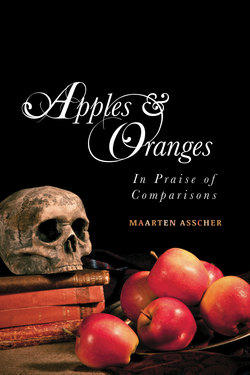Apples and Oranges

Реклама. ООО «ЛитРес», ИНН: 7719571260.
Оглавление
Maarten Asscher. Apples and Oranges
Отрывок из книги
APPLES AND ORANGES
In Praise of Comparisons
.....
But isn’t simplification ultimately lethal if we want to acquire a proper understanding of the differences between the past and the present? Not in my opinion. In the aforementioned Job Cohen interview, in which the former mayor of Amsterdam recounts that his mother felt just as excluded at the beginning of the war as he imagined Dutch Muslims today feel excluded, the differences between then and now are as clear as day. The active and systematic exclusion of Jews by the German occupier was followed by round-ups, imprisonments, forced deportations, and intentional, wholesale annihilation. Everyone knows—including Job Cohen himself—that while the comparison with 1940-’45 was apropos, there is nothing to suggest that the same events are likely to present themselves today. Cohen’s historical comparison clearly does not state that then and now are the same, rather it signals a parallel between the feeling of exclusion experienced by one group at the beginning of the 1940s and another group in the present day. Those who draw a comparison between Napoleon’s Russian campaign and Hitler’s Operation Barbarossa don’t have to apologize for the countless differences between 1812 and 1941 as long as they do something meaningful and convincing with the parallel they posit. Likewise, Job Cohen should not be criticized for the aspects of his historical comparison that ‘fall short’. He should be judged rather on the insight he was able to derive from the comparison, to the extent that he considered it to hold true.
Another advantage of historical comparison is that it promotes the transparency and falsifiability of an argument. Engaging in polemic with implicit claims is much trickier. The majority of historical parallels tend to be implicit, in most instances already locked into the language itself. In my description of the environment in which the Italian Carbonarist Silvio Pellico lived, I spoke about ‘freethinking liberals’ and ‘independence activists’. My interpretation of Carbonarism can be determined immediately on the basis of my choice of words. I could have spoken about ‘traitors’, ‘conspirators’, and ‘rebels against legitimate Austrian authority’. My terminology alone draws an implicit comparison with other European revolutions and liberation movements. The more explicit I make the comparison, the clearer my position becomes to the reader and the easier it is to call me to account for my interpretation.
.....